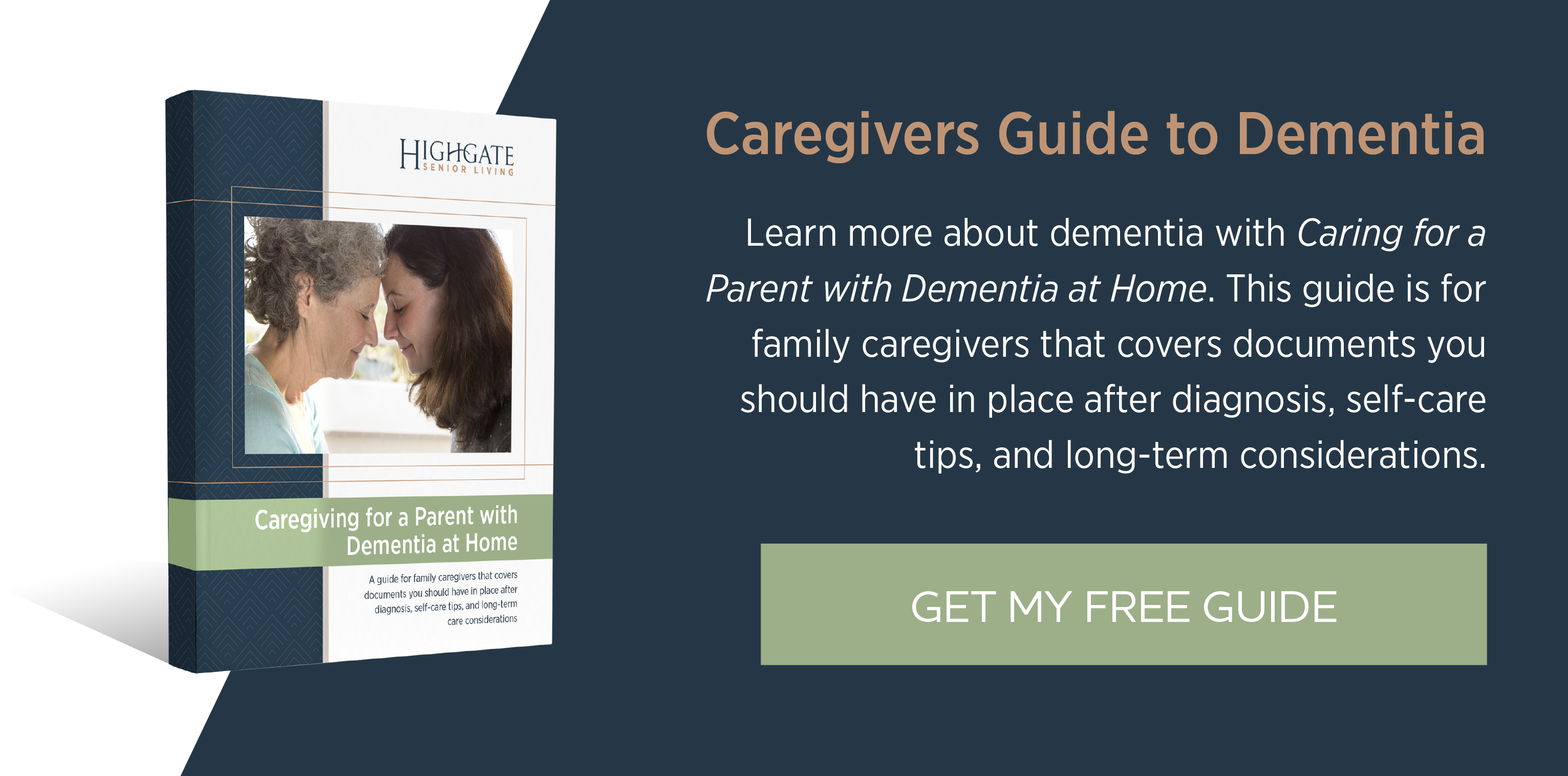 If you are caring for a loved one with dementia, memory loss will have an effect on your relationship. However, that doesn’t mean you still can’t have meaningful interactions with them.
If you are caring for a loved one with dementia, memory loss will have an effect on your relationship. However, that doesn’t mean you still can’t have meaningful interactions with them.
The Importance of Meaningful Connections
Humans have a biological, basic need for meaningful interactions. Feeling connected to the people and the world around you helps keep your body, mind, and spirit strong and healthy.
Although people with memory loss might forget names and faces, they can still feel emotions long after memories have vanished. Teepa Snow, a leading Alzheimer's and dementia expert, says it’s important for caregivers to focus on what’s left, not what’s lost, and what can be done rather than what can’t.
Known for her Positive Approach to Care, Snow encourages caregivers to love and respect those living with memory loss for who they are now. People with dementia might not be able to plan activities or have in-depth conversations; however, with support, they are able to stay active and engaged.
The key is to meet your loved one where they are cognitively, emotionally, and physically.
How to Meet Your Loved One Where They Are
It’s normal to want to connect the way you always have with your parent, spouse, or aging loved one with dementia. However, it’s important to remember that your loved one is coping with a progressive brain disease.
Over time, people with memory loss will struggle to find the right word to say, tell the same stories over and over, not be able to recall major life events, have difficulty expressing themselves, and eventually require assistance with the activities of daily life.
Many family caregivers keep trying to interact with their loved one in the same way they always have. Or, they spend time together without a specific plan. This can lead to stress, anxiety, and generally unpleasant experiences for both of you.
Ultimately, meaningful engagement is up to you, not your loved one with memory loss. So, change your approach and enter your loved one’s world. This not only helps reduce their anxiety and engenders a sense of security as empathy is established and trust is built. It also helps transform the caregiving process from a burden into a fulfilling journey for you.
So, how do you meet your loved one where they are and create meaningful interactions? Focus on positive, personal connection.
3 Tips for Meaningful Connections
Instead of getting frustrated by your loved one’s inability to respond or taking offense to forgetting a conversation you recently had, focusing on the positive and the personal relationship can lead to connections that are meaningful for both you and your loved one.
1. Stay Positive
Your loved one might not be able to comprehend the words that you’re saying, but they can notice your tone and rhythm. When you initiate interactions with your loved one with memory loss, be warm and open in your tone and mannerisms.
This can be challenging if you walk into the house and say, “Hi, Mom, it’s me, your daughter,” and your mom responds with, “But you’re not my daughter.” Your instinct might be to correct your loved one. Research shows learning what is behind those feelings, or simply by joining them in their world, is often the kindest, most respectful way to handle the beliefs and perceptions that a loved one’s brain creates.
So, for example, instead of scolding or correcting her, ask your mom about her daughter, what she misses about her, what she looked like.
It’s easy to get down as a caregiver. If you’re feeling ambivalent, irritable or tired, notice how your mood impacts your interactions. Consider visiting when you’re feeling up for it, not when you feel obligated to.
2. Make It Personal
To create meaningful interactions with a loved one with memory loss, think about their past or present hobbies, interests, or work.
For example, if your loved one was always active in a book club, but is no longer able to read, try reading to them. If they loved their pet dog, plan visits where they’re able to interact with a furry friend. If they used to take pleasure in organizational tasks or cleaning the house, activities around the home, such as folding laundry or organizing a messy drawer, can help them feel involved and enhance their self-esteem.
For someone with progressive memory loss, “activities” can be anything they do from the moment they get up in the morning to when they go to bed at night. Helping your loved one remain active through personalized activities is important. It helps them maintain a sense of self-worth and gives them purpose and enjoyment.
Just remember to use fewer words and more visual clues.
3. Connect in the Moment
For someone with dementia, it’s all about the present moment. You can help create meaningful connections with your loved one by tapping into different senses. Stimulating hearing, sight, smell, taste, and touch can lift your loved one’s spirit and reinforce the connection.
Research shows that sensory stimulation — anything that appeals to one of the five senses — can help your loved one feel more comfortable and relaxed, connect with the world around them, and improve overall mood, self-esteem, and well-being.
As dementia progresses, you might consider relying on more nonverbal communication clues. For example, use gentle touch as a communication tool. Holding hands, a hug, or a gentle shoulder massage is particularly good to alert the senses, emotionally uplift your loved one, and leave them feeling relaxed and with a sense of being worthy of being touched.
Focus on the Why, Not the How
It’s true that it can feel awkward and sometimes frustrating when interacting with someone who has dementia. Acknowledging that your relationship will be different can promote healing, and learning about dementia and memory loss can make it easier to cope.
Instead of focusing the how — eating a meal together, playing a game, gathering for the holidays — which can indeed be frustrating and exhausting, Teepa Snow says it’s about the why: Your loved one who can be reached and who deserves to live a life of purpose.
For more tips for caring for someone with memory loss, download our Guide to Caring for Someone with Dementia for Family Caregivers.






